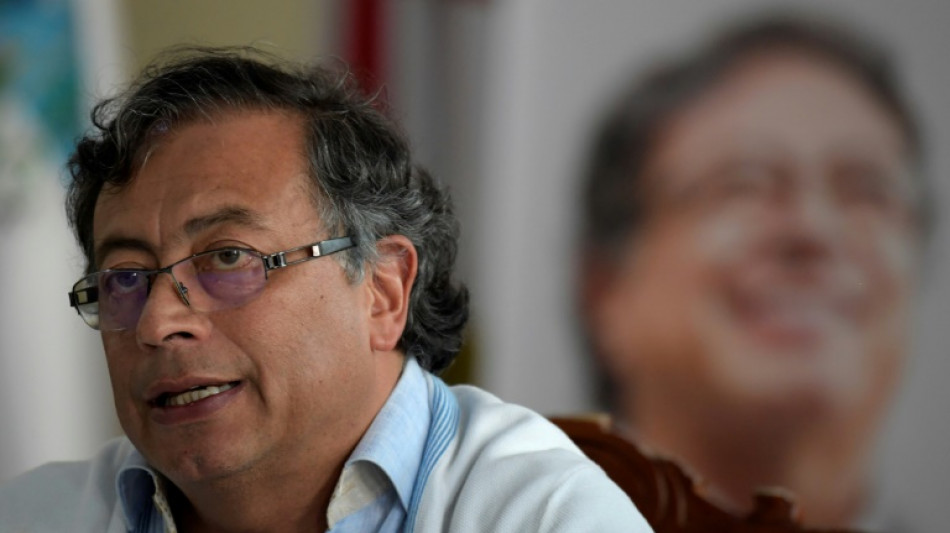
-
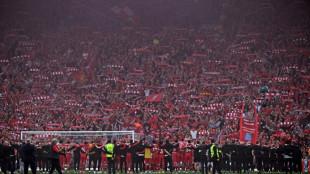 Slot told Liverpool they could win the league at season start: Konate
Slot told Liverpool they could win the league at season start: Konate
-
Spain brought to a halt by huge blackout
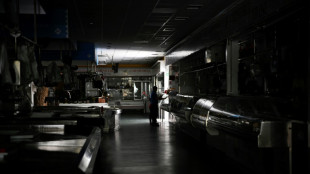
-
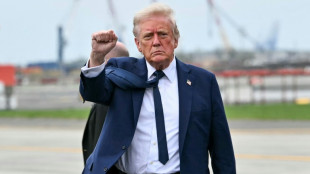 Stock markets mostly higher amid trade talk hopes
Stock markets mostly higher amid trade talk hopes
-
Conclave starts May 7, with cardinals saying new pope must tackle abuse
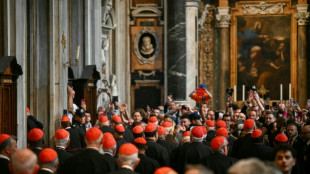
-
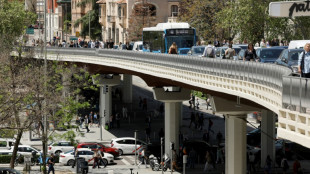 Massive blackout hits Spain and Portugal
Massive blackout hits Spain and Portugal
-
Ruediger 'must show respect to others' says Germany boss Voeller
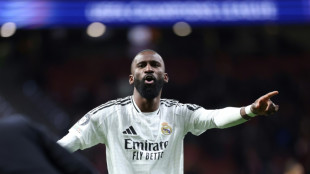
-
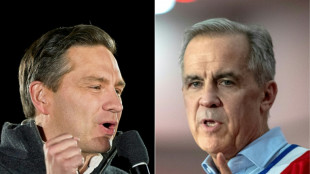 As Canada votes, Trump pushes US takeover plan
As Canada votes, Trump pushes US takeover plan
-
Ten on trial in Paris over 2016 gunpoint robbery of Kim Kardashian
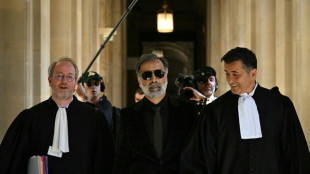
-
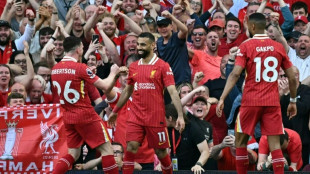 African players in Europe: Salah scores, takes selfies as Reds seal title
African players in Europe: Salah scores, takes selfies as Reds seal title
-
Bangladesh spinner Taijul's 5 wickets trigger Zimbabwe collapse in 2nd Test
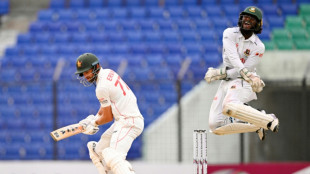
-
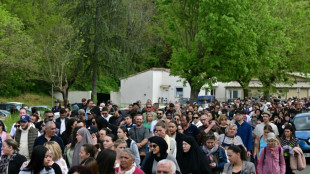 French mosque murder suspect, 21, surrenders in Italy
French mosque murder suspect, 21, surrenders in Italy
-
Mayor Khan keen for London to make Olympics history
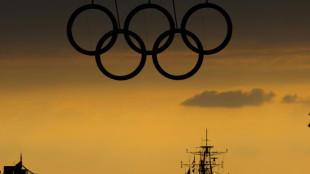
-
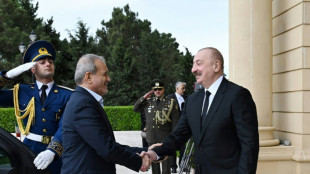 Iranian president visits Azerbaijan as ties warm
Iranian president visits Azerbaijan as ties warm
-
What we know ahead of the conclave
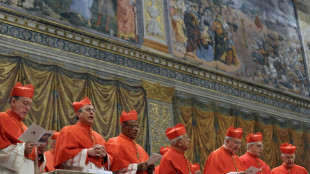
-
 Jannik Sinner launches foundation supporting children
Jannik Sinner launches foundation supporting children
-
Villagers on India's border with Pakistan fear war
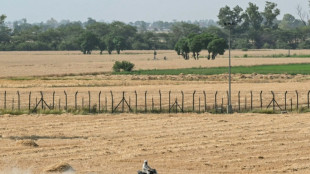
-
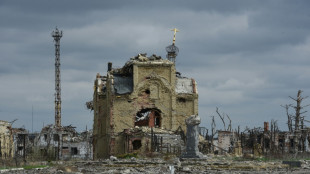 Putin announces surprise Ukraine truce for May 8-10
Putin announces surprise Ukraine truce for May 8-10
-
Conclave to elect new pope starts May 7
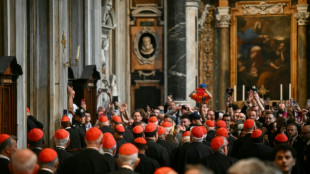
-
 Stock markets mostly rise amid trade talk hopes
Stock markets mostly rise amid trade talk hopes
-
India says signs deal with France for 26 Rafale fighter jets
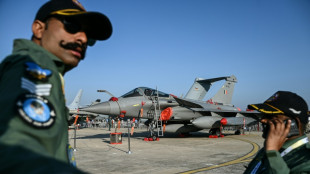
-
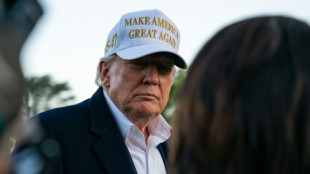 Trump's deep-sea mining order violates global norms: France
Trump's deep-sea mining order violates global norms: France
-
India Kashmir crackdown sparks anger as Pakistan tensions escalate
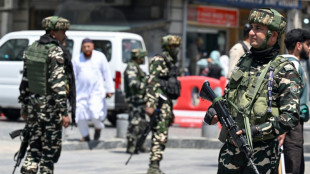
-
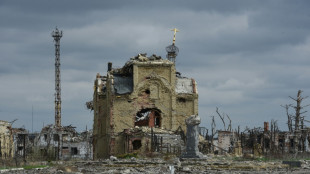 Russia says claims over annexed Ukraine regions key to peace
Russia says claims over annexed Ukraine regions key to peace
-
Austrian climber dies on Nepal mountain
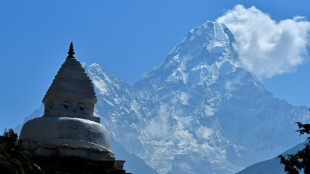
-
 Fires rage 2 days after Iran port blast killed 46
Fires rage 2 days after Iran port blast killed 46
-
Palestinian official tells ICJ Israel using aid blockage as 'weapon of war'
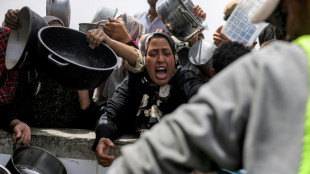
-
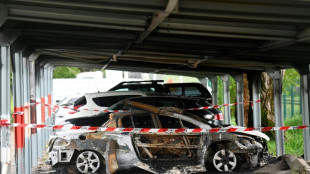 France arrests 25 in police raids after prison attacks
France arrests 25 in police raids after prison attacks
-
Kim Kardashian's next star turn is in a Paris courtroom

-
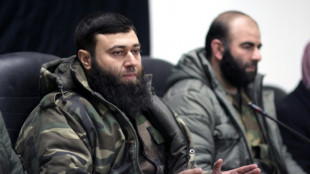 Syria group says military chief arrested in UAE
Syria group says military chief arrested in UAE
-
Anger in Indian Kashmir at demolitions and detentions
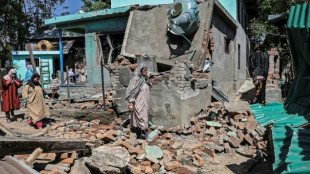
-
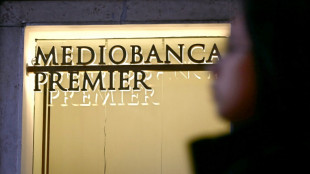 Italy bank merger wave heats up as Mediobanca eyes Banca Generali
Italy bank merger wave heats up as Mediobanca eyes Banca Generali
-
Putin critic Johann Wadephul, Germany's incoming foreign minister
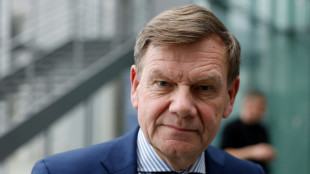
-
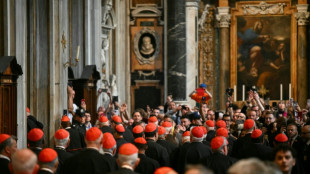 Cardinals expected to pick conclave date to elect new pope
Cardinals expected to pick conclave date to elect new pope
-
French mosque murder suspect arrested in Italy
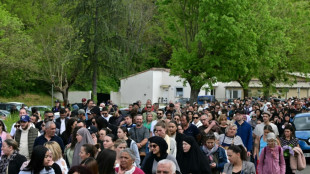
-
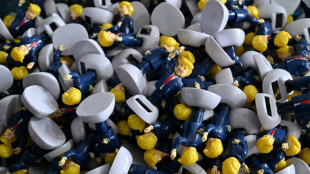 China says on 'right side of history' in trade standoff with US
China says on 'right side of history' in trade standoff with US
-
Stock markets mostly rise as investors eye trade talks

-
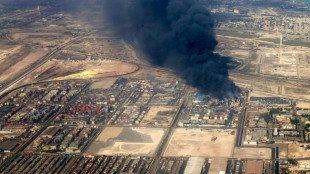 Fires rage 2 days after Iran port blast killed 40
Fires rage 2 days after Iran port blast killed 40
-
Yemen's Huthi rebel media says 68 killed in US strikes on migrant centre
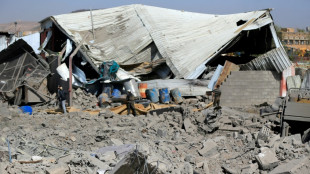
-
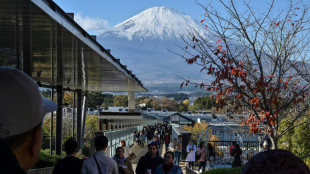 Man rescued from Mount Fuji twice in one week: reports
Man rescued from Mount Fuji twice in one week: reports
-
Canada votes for new government to take on Trump
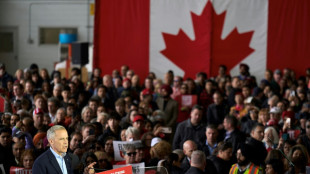
-
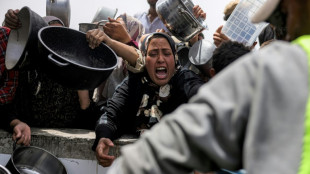 Top UN court to open hearings on Israel's aid obligation to Palestinians
Top UN court to open hearings on Israel's aid obligation to Palestinians
-
Philippines denies 'irresponsible' Chinese report on disputed reef
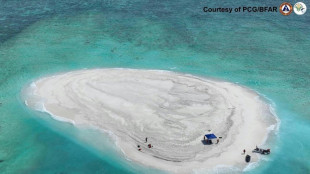
-
 T'Wolves win to push Lakers to brink, Celtics, Knicks and Pacers win
T'Wolves win to push Lakers to brink, Celtics, Knicks and Pacers win
-
Myanmar marks month of misery since historic quake
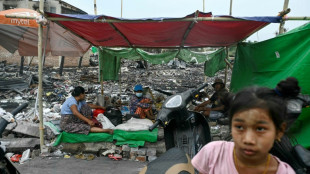
-
 South Korea's SK Telecom begins SIM card replacement after data breach
South Korea's SK Telecom begins SIM card replacement after data breach
-
Women's flag football explodes in US as 2028 Olympics beckon

-
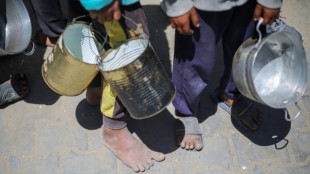 'Hunger breaks everything': desperate Gazans scramble for food
'Hunger breaks everything': desperate Gazans scramble for food
-
Suspect charged with murder in Canada car attack that killed 11
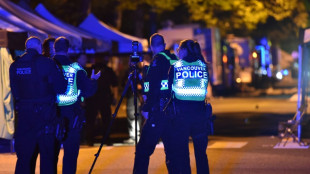
-
 Lost to history: Myanmar heritage falls victim to quake
Lost to history: Myanmar heritage falls victim to quake
-
Romania far-right rides TikTok wave in election re-run
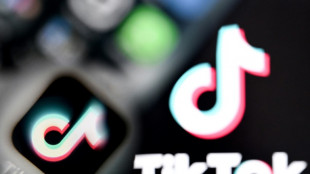

Colombia military bristles at rise of leftist presidential hopeful
Historically aligned to a succession of rightwing governments, Colombia's top military echelon has broken a long-standing rule of political neutrality to lash out against a perceived leftist threat.
With former guerrilla fighter Gustavo Petro standing a good chance of becoming Colombia's next president, the army chief and defense minister have taken to social media to brand him a "liar" and corrupt.
Petro, a former enemy of the state security apparatus as a guerrilla in the 1970s and 80s, is leading in opinion polls ahead of the May 29 first round of presidential elections.
If he wins, he will become Colombia's first leftist leader and the first former guerrilla to oversee the armed forces of a country still battling the violent aftermath of six decades of civil conflict.
Petro's rise has so riled up the military establishment that they have risked contravening the law to slam him publicly.
A constitutional provision bars those in uniform from voting or expressing political opinions.
"There are those within the military who perceive that the war (against guerrilla forces) was won on the battlefield but is being lost politically," Carlos Alfonso Velasquez, a military analyst and ex-colonel told AFP.
"They consider that the political class with which the army has been aligned -- which is the one that has always governed -- is losing," he added.
In 2018, Petro lost in a presidential runoff to right-wing lawyer Ivan Duque.
This time the economist and former Bogota mayor is leading, though still short of the 50 percent required for a first-round victory.
- 'Suspicion and fear' -
Petro, now 62, battled the state in the ranks of M-19, a nationalist rebel group that surrendered its weapons in 1990.
He spent time in exile in Europe in the 1990s, entering politics on his return home.
For many Colombians still today, the political left that Petro represents is tainted for its association with the guerilla groups that battled the state, far-right paramilitaries and crime syndicates for control in a complex conflict that claimed tens of thousands of lives.
Petro has been critical of the security forces, which count some 228,000 soldiers and 172,000 police that could soon fall under his executive command.
It is the second biggest military in South America, after Brazil's, and the United States has invested millions in equipping and training it in the war against drug trafficking in the world's largest cocaine producer.
Petro is perceived with "a certain suspicion and fear" by some in uniform, retired colonel Jose Marulanda told AFP.
"We feel that he has a very clear resentment of the military and police who were the ones who eliminated his M-19 comrades in combat," said Marulanda.
- 'Politicking' -
Petro has proposed reducing the military budget, implementing a promotion policy based on merit rather than nepotism, and removing the police from under the defense ministry's umbrella.
Last month, he accused generals of colluding with narcos while the lower ranks lose their lives in the drug battle.
Irate, army chief Eduardo Zapateiro tweeted a response accusing Petro of "politicking" off the deaths of soldiers. He also accused him of being corrupt.
The entity that oversees public officials in Colombia opened an investigation into whether the general's outburst broke the rules and amounted to political interference in the presidential campaign.
President Duque came to Zapateiro's defense, and Defense Minister Diego Molano posted a tweet with the hashtag: #PetroLiar.
The military was not only a protagonist in the decades-long conflict but also a signatory of the 2016 peace agreement that led to disarmament of the FARC guerrilla group.
Yet, some later criticized the pact for perceived concessions to the rebels.
"A dangerous idea has been popularized that the armed forces are of the right and that the left is their enemy," Petro wrote in a recent op-ed.
- Prestige 'shaken' -
While Colombia's military has long enjoyed widespread popular support for its perceived rout of armed groups, scandals have undermined its reputation in recent years.
These included revelations of ties with paramilitary groups and the execution of some 6,400 civilians between 2002 and 2008 that troops had presented as guerrilla fighters in a bid to inflate their results.
"The prestige of the army, cultivated in the conflict, has been shaken," said Velasquez. "And the military sees Petro as the person amassing the criticism against it."
Yet experts for and against Petro say a military coup is an improbable outcome.
More likely, "we would see within the ranks some kind of dissatisfaction that would manifest as resignations," said Marulanda.
But there are also those in the military aligning with Petro, added Alfonso Manzur, head of the organization Veterans for Colombia.
"There is discontent in the high ranks... because they feel the promotion system has been corrupted by internal mafias," he explained.
P.M.Smith--AMWN